300 Hour Yoga Teacher Training Week 1
This is a write up of my experience in week 1 of the 300-hour yoga teacher training with Sampoorna – Yoga Teacher Training School in India. If you haven’t already checked it out, you might want to look at my first blogs in the series which looked at considerations and advice I would give before committing to a choosing a yoga teacher training and my preparations before starting the course.
Week 1 started with an opening fire ceremony with the 300-hour and 200-hour classes coming together to open the course.
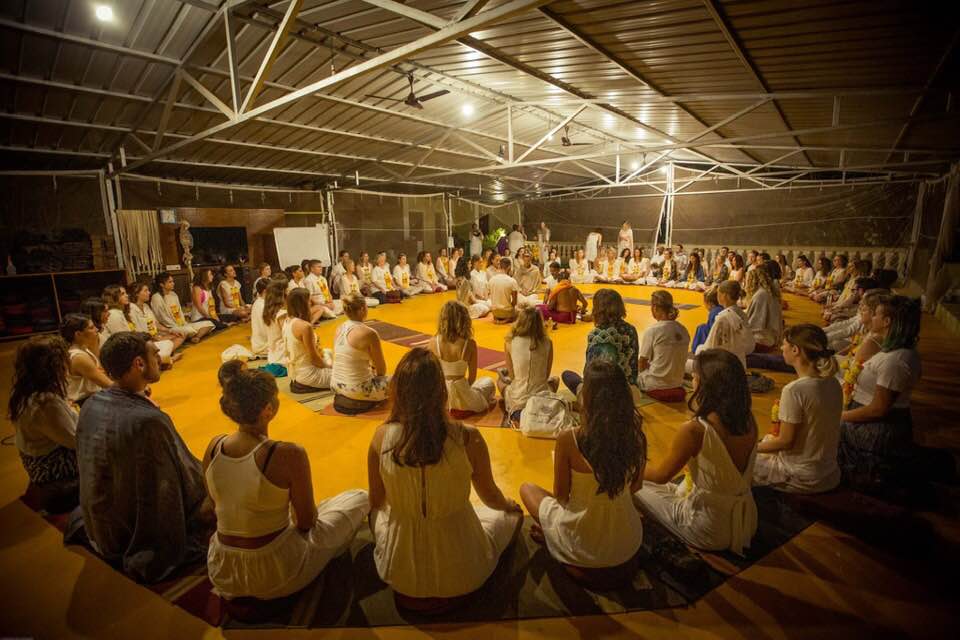
The significance of the fire ceremony is to gather together and pray for overall growth. We prayed for wisdom, to perform the right actions, to remove negative emotions and to inculcate positive qualities.
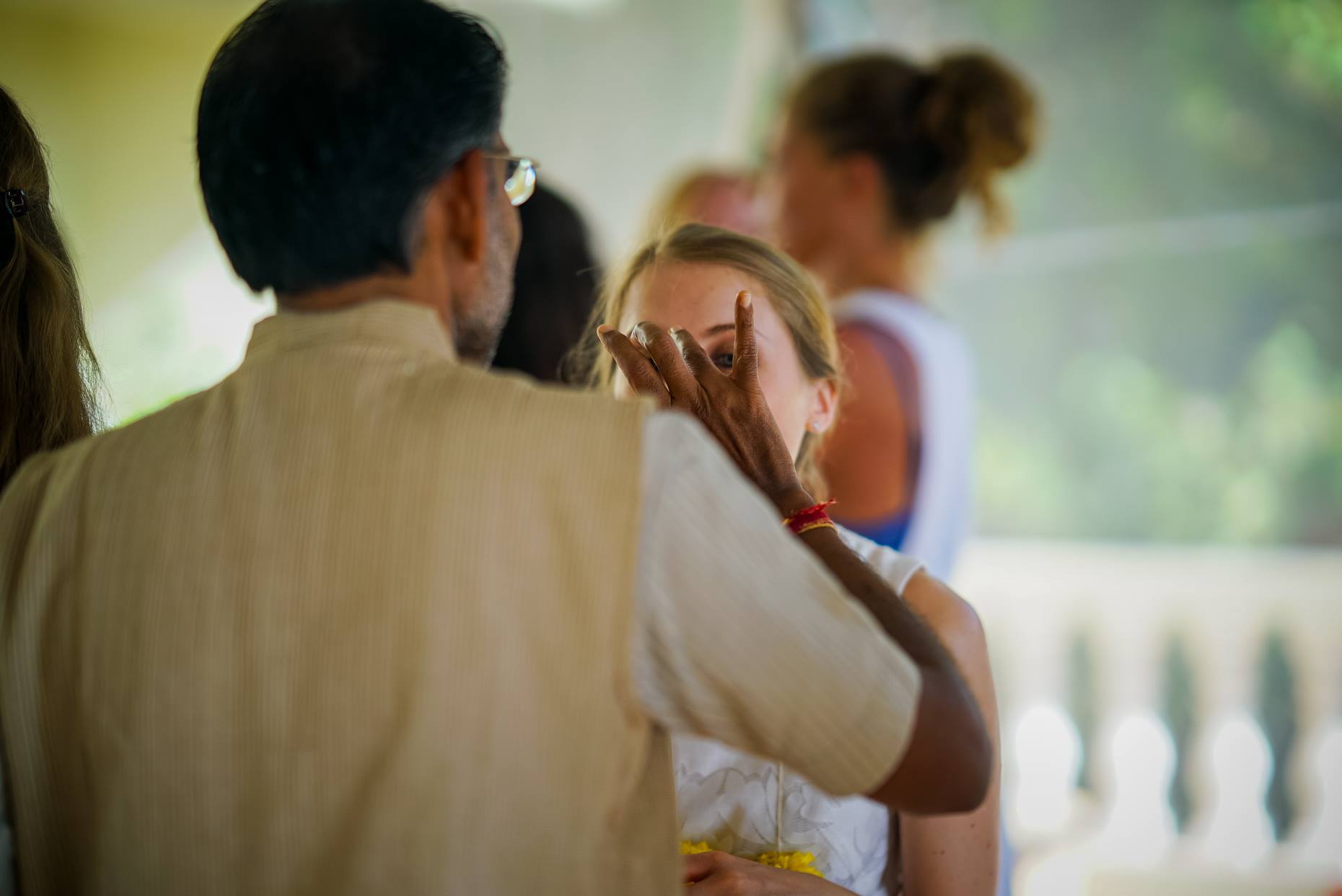
Week 1 Timetable:
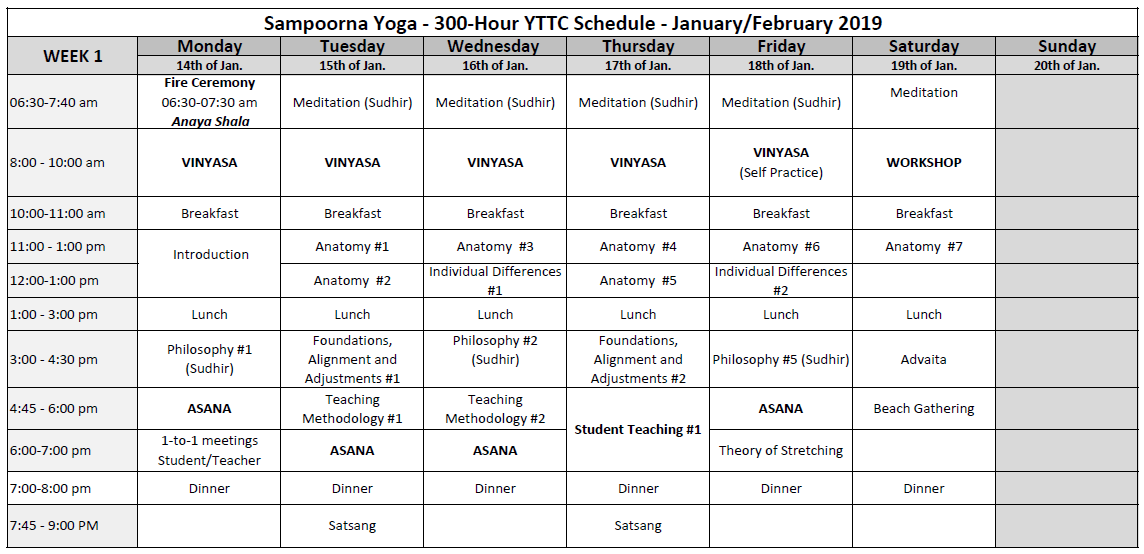
As you can see the timetable for the first week was jam packed, so we were straight into it!
Luckily there was quite a bit of revision from the 200-hour course in anatomy and philosophy in the first week. Students on the course would have studied the 200-hour YTT course in different schools and for some people this might have been a long time ago. It is therefore good that there is a review to ensure everyone gets up to the same level by the end of week 1. Throughout the rest of the weeks, there were also some other areas of revision where the topics linked in with new material.
A bit more about the classes in the timetable below…
1-to-1 meetings student/teacher
On the first day there was an opportunity to discuss your background and goals for the course with one of the teachers. This is also a good chance to discuss any injuries you have come with so that the teachers are aware of this in your practice.
We were a class size of 24 and had 4 teachers and the course director would take the meditation and philosophy classes. The teachers were all highly experienced. The lead teacher had been teaching yoga for around 20 years, was a yoga studio owner and had taken courses with famous teachers such as Jason Crandall and Paul Grilley. The other teachers had a variety of experience including a dance background, boxing and strength training background and experience in different aspects of yoga such as business areas, social media and photography. They were all able to add their unique experience to the course and content.
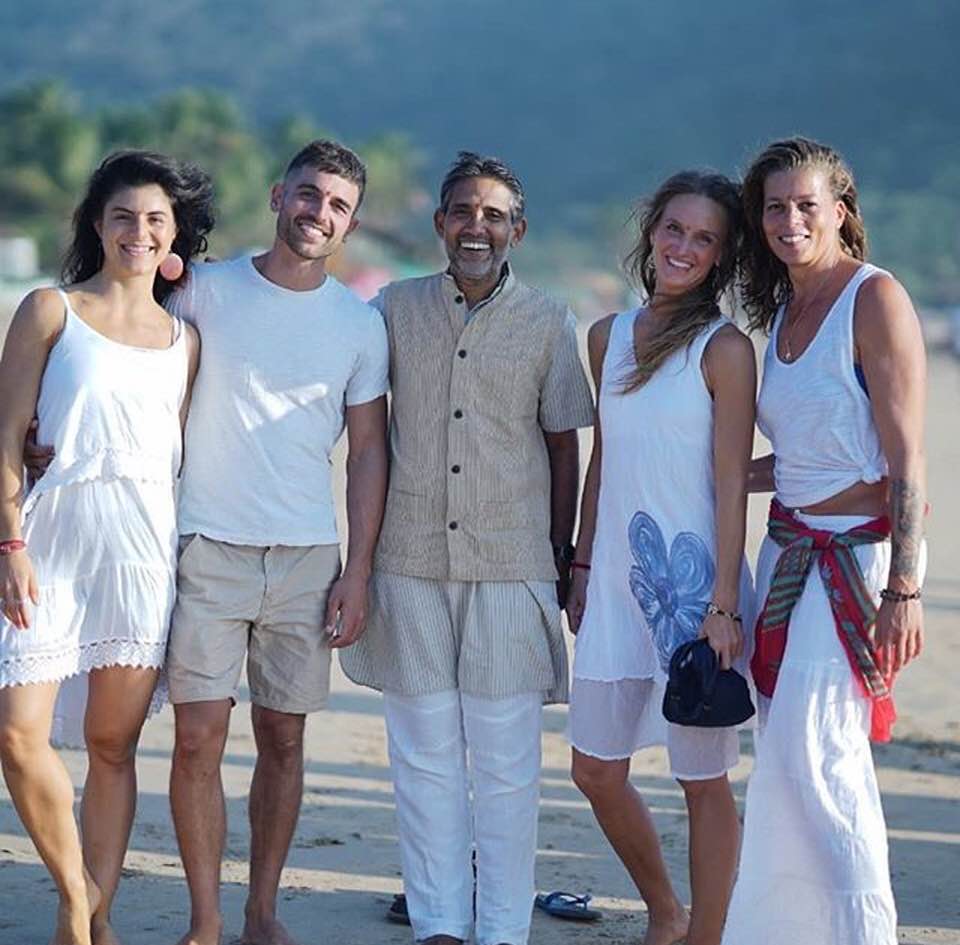
Vinyasa Class:
There is a 2 hour Vinyasa yoga class every morning with one of the teachers. This was probably my favourite part of the day! I You might have concerns about whether your standard of yoga is good enough and I had that too but really don’t worry about it and remember you are a yoga teacher too so there is no need to compare yourself to the other yoga teachers you are training with. Yes, there are things that you won’t be able to do but that is one of the things we love about yoga and the fact that there is always that bit of challenge! I loved being challenged by the classes, it was satisfying to achieve some new poses and great to come out of the classes with that determination to work towards some of those I couldn’t quite do.
I am often quite competitive, and I was surprised at how little competitiveness I felt during the course. I think for me it was because everyone was so different, both on a personal level, and in terms of their yoga. You couldn’t really compare yourself to anyone. Everyone had different strengths and weaknesses we were all very encouraging with one another.
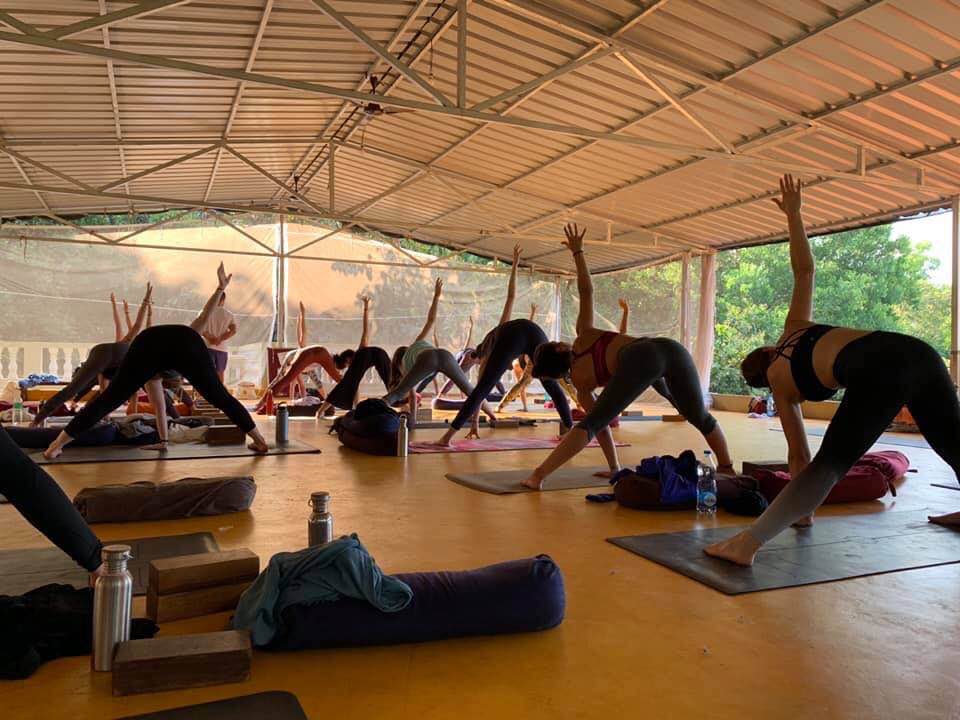
Other Asana Class:
The second asana practice later in the day varies in style. Some examples of the types of classes we did included Yin yoga, animal flow, vinyasa flow to the beat of a metronome and a pregnancy yoga simulation.
Individual Differences:
These classes were interesting and followed on from some of the pre-course DVDs. In the 200-hour teacher training there hadn’t been very much in the way of how bodies of students could differ so much and how this can impact what works for them in certain poses. I don’t just mean on a muscular or tissue level, this was more focused on how the shape and length of joints can impact yoga and as these aspects of our bodies can’t be changed, it is something that must be accepted.
This is just one example of a big theme that came out of the 300-hour teacher training in that yoga is not actually as black and white as you maybe thought after the 200-hour yoga teacher training!
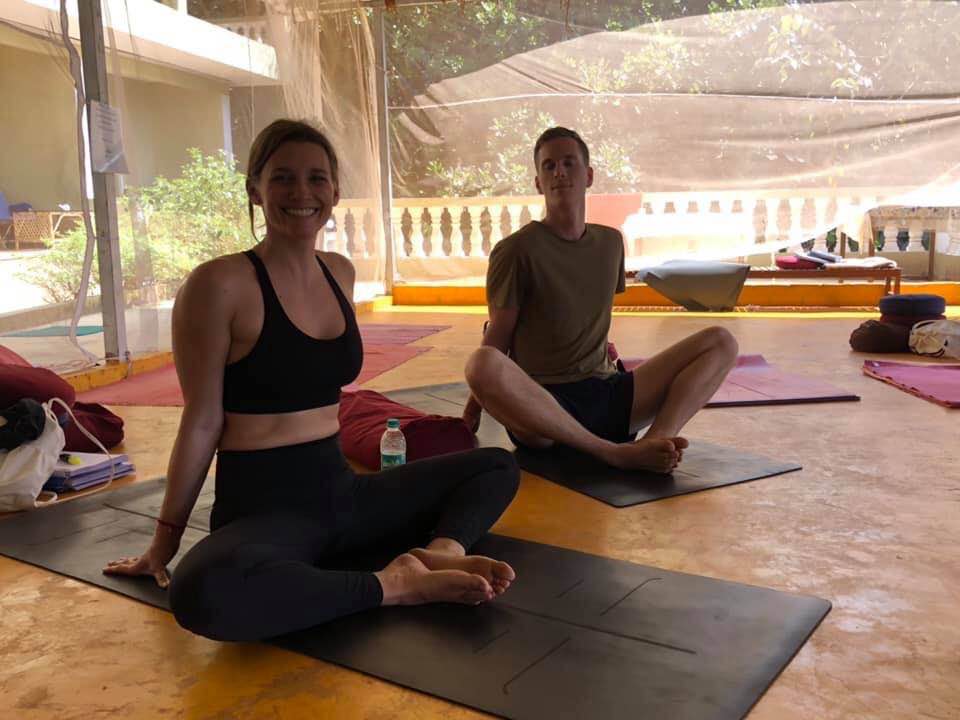
Alignment and Adjustments:
Learning more about how to adjust and being comfortable with adjusting was one of my goals for the course because I hadn’t felt hugely confident with this from my 200-hour teacher training and did minimal adjustments with students in the classes that I was teaching before the course.
I thought these classes were the perfect mix of demonstration by the teachers and then practice through adjusting other students.
Student Teaching #1: 20-minute warm up sequence
Towards the end of the first week we had to teach a 20-minute warm up to a group of other students. Even though I have been teaching classes for 2 years this was surprisingly nerve-racking! I think it is because you were teaching other teachers and there is the idea that you are being judged and assessed. It is the first exercise, so you are not sure what to expect. There was no feedback given for this first exercise as it was just a chance to get used to the teaching. The teachers were good at helping you feel confident and they were understanding that this was difficult environment to teach in. The students were supportive of each other and it was a good opportunity to get to know people better in your teaching group.
There was a quite a variety of teaching experience amongst students across the course. Some people had completed their 200-hour training recently and had not taught classes yet whereas other people had been teaching for years. The style of teaching varied as well with some people only having taught either group or private classes or different styles of yoga/workshops.
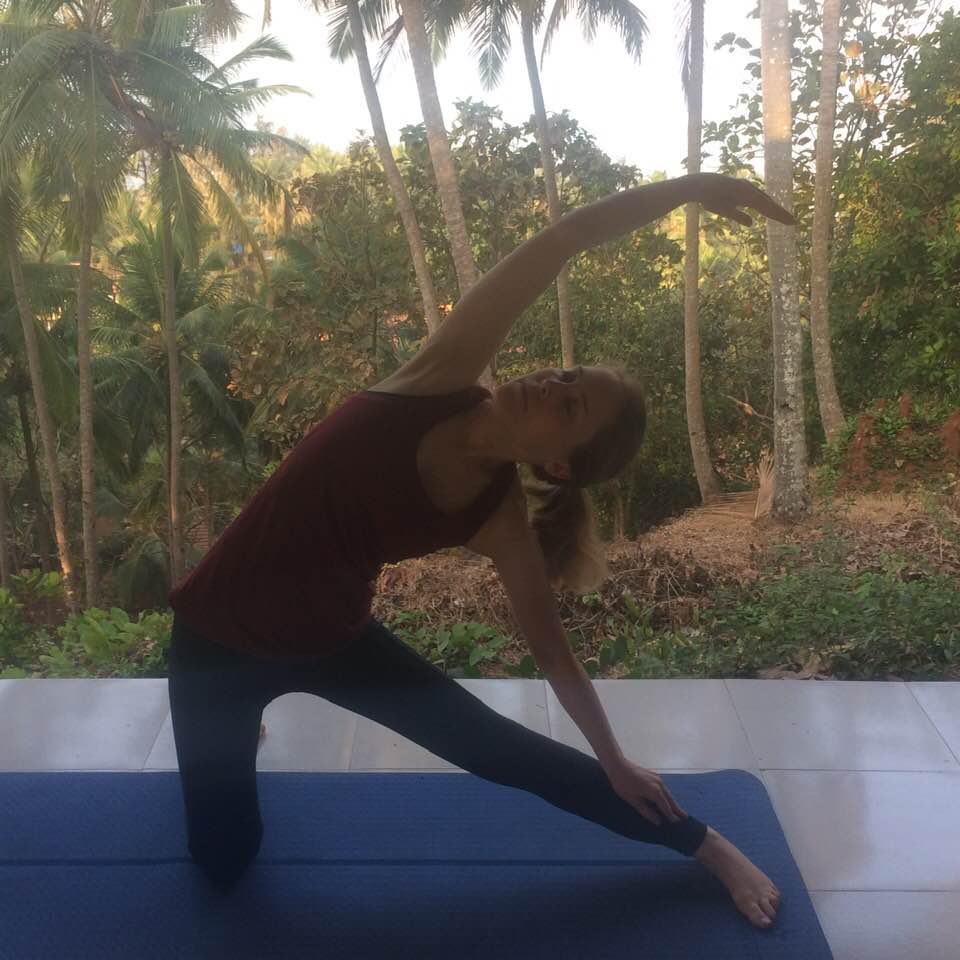
Satsang:
Satsang is traditionally a get together with an enlightened person who usually gives a short speech and then answers questions. This would typically involve listening to or reading scriptures, reflecting on, discussing and assimilating their meaning, meditating on the source of these words, and bringing their meaning into one’s daily life.
On two evenings in the week, the course director runs a Satsang get together with the students and teachers where topics are discussed and explored. This is mandatory in the first week but becomes optional to attend in the second week.
Beach Gathering
There was a bit of a social get together at the end of the first week for the students and teachers. It started off with a team challenge where we had to solve a riddle and locate the place that was being described. We took photos once we arrived and then fed back the team’s adventure to the rest of the group when we got back to the beach. It was a good opportunity to get to know the members of your team a bit better and find out about places in the local area. This then gave us some god ideas of places to visit on the day off.
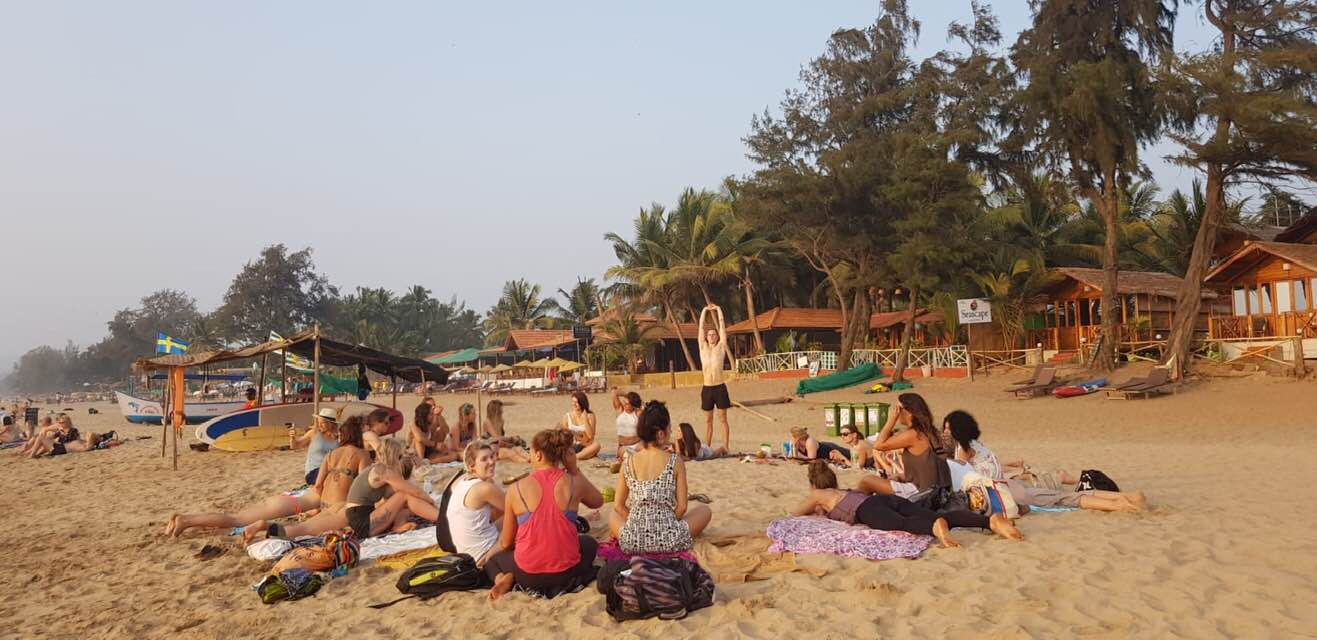
Students on the course
The class size at Sampoorna is upto 30 students. Alongside the 300-hour course there was also 2 classes of 200 hours taking place. The yoga village therefore had around 90 students studying at the time I was there and I understand this is usual during the season. The 200-hour students had a separate dining area and did their classes separate to us so we actually didn’t interact with them too much. I therefore got to know students on the 300-hour course a lot better.
The personality of the group and individuals in the group was fantastic. I think you are bound to get on with a group like this easily when you have such a strong common interest and you are all doing something so enjoyable together.
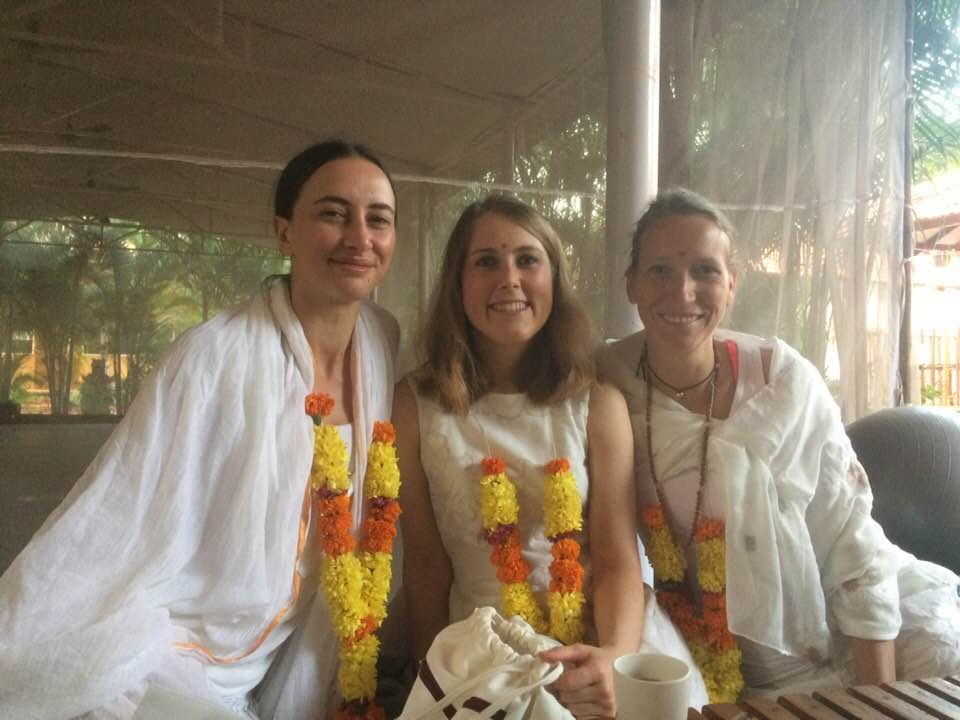
My personal experience of week 1
I was taking 5 weeks of work to do the Sampoorna yoga teacher training. I had been really busy in the lead up to the trip in order to get things set up at work so I actually arrived at Sampoorna feeling quite exhausted and although I had physically arrived and was physically there in the first week, I think my mind took a bit longer to join me and I was still thinking about work and home at the beginning of the week. It was probably only towards the end of the week that I was able to start to feel fully present and I set the intention to remain present for the rest of the course. My advice would therefore be that if you can do so, it would be nice to come to the course feeling quite relaxed, on top form and ready for what will be quite an intense few weeks. If you can arrive a few days earlier in Goa that might be a nice way to get settled and used to the local area and new surroundings. There is a lot to take in in the first few weeks, especially if it is your first time to India. You will probably find you are feeling quite tired in the first week with being in a completely different environment, new people, a new schedule, eating different food and starting a completely new way of life.
Sampoorna make everything comfortable for you. You meet some lovely people who you will be sharing the experience with so you do start to settle in really quickly and by the end of the week you feel like you have been living here forever!
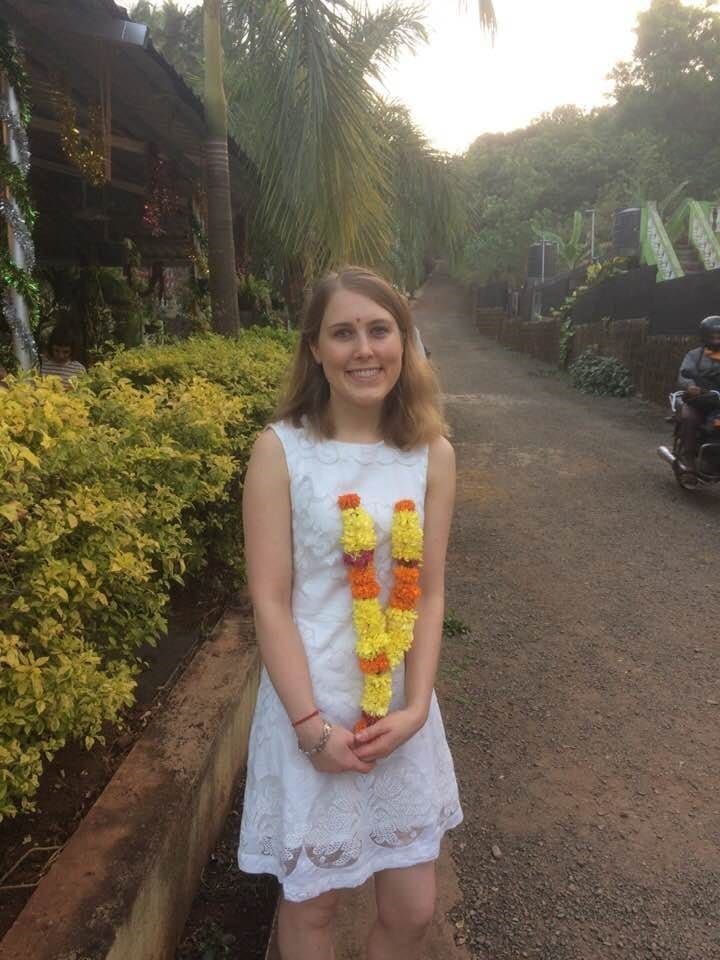
yoga teacher training
Further reading:
This blog post explored week 1 of the training course you might want to look at further blogs in the series where I have written up my experience throughout the course:
1. Considerations before taking a yoga teacher training
2. 300 Hour Yoga Teacher Training – Before the course
3. 300 Hour Yoga Teacher Training – Week 1 (Current article)
4. 300 Hour Yoga Teacher Training – Week 2
5. 300 Hour Yoga Teacher Training – Week 3
6. 300 Hour Yoga Teacher Training – Week 4
7. 300 Hour Yoga Teacher Training – Final Thoughts
8. Agonda, Goa, India
Sarah Williams is a Qualified Yoga Teacher based in London with an online presence @sarahlucyyoga on Instagram and Facebook. She also blogs about yoga and health & wellbeing topics on her website. Sarah’s focus is Vinyasa Flow, Hatha and Ashtanga styles of yoga and she completed part of her training in India.
As well as being a yoga teacher Sarah is also a Chartered Accountant. She fell in love with yoga as it was a release from the office, it taught her to value her health and improved the attitude she had towards life and herself. As a teacher she is able to pass on the benefits of yoga to her students and finds the job incredibly rewarding.
She has completed her 300 hr advanced teacher training from Sampoorna Yoga Goa in January-February 2019. If interested in Yoga Teacher Training please browse our Teacher Training page
YOGA ALLIANCE REGISTERED YOGA TEACHER TRAINING COURSES

Sampoorna Yoga Teacher Training School has been a registered international yoga school with Yoga Alliance, holding RYS-200, RYS-300, RYS-500, and YACEP designations since 2009. Its online and in-person Yoga Teacher Training Courses and Certifications are recognized and accepted worldwide, enabling all graduates to teach globally. Upon course completion, participants receive a 200-Hour, 300-Hour, or 50-Hour Yoga Teacher Training Certification, allowing registration as RYTs (Registered Yoga Teachers) with Yoga Alliance. Our Yoga Teacher Training Certificate Courses empower you to teach legally in any country, whether you choose to register with Yoga Alliance registration or not.

